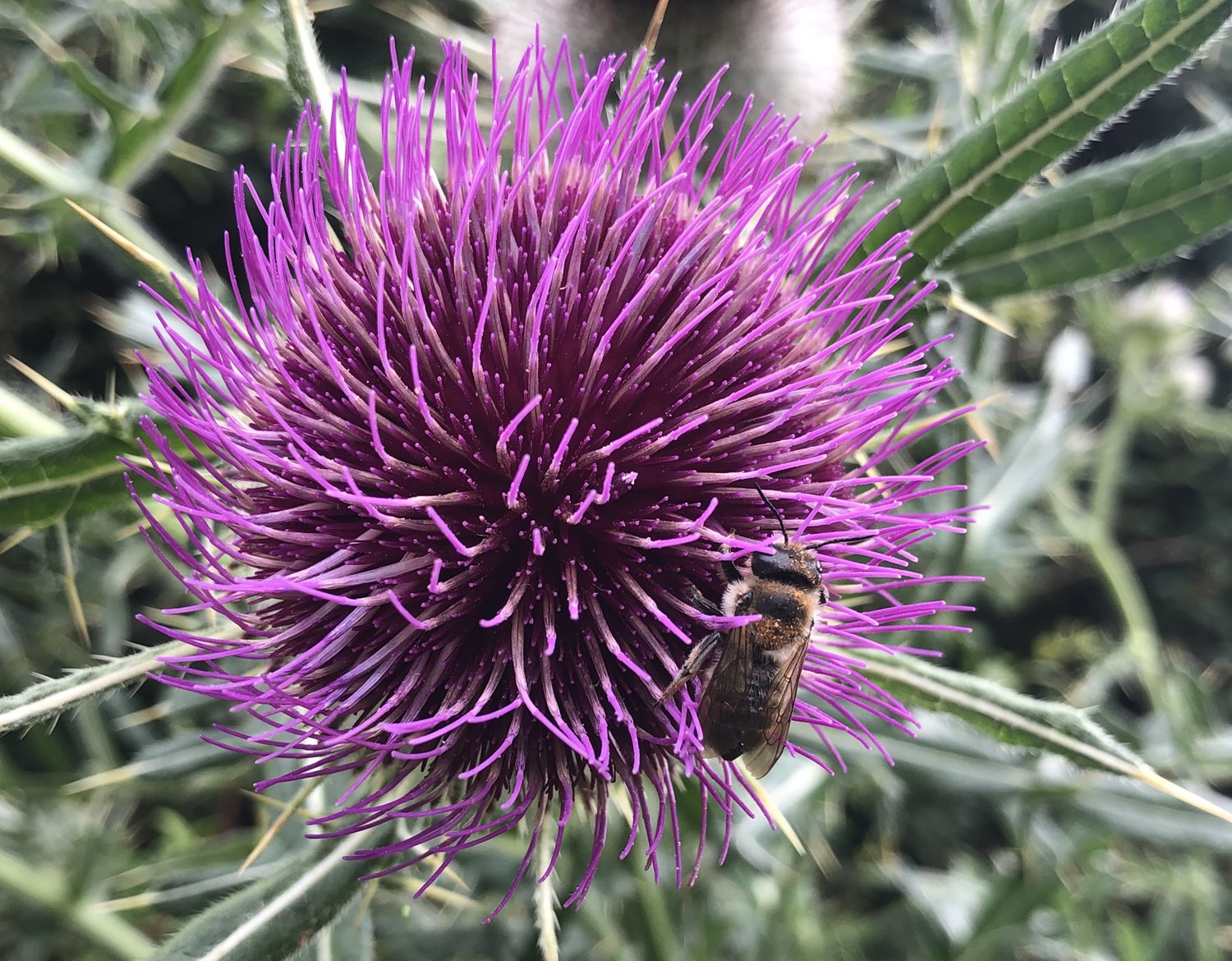Bee Blog: September 2020
Whilst we are still some way from the true end of the year, for many beekeepers the year is often said to end in August with the removal of the summer honey and the beginning of the preparations for the next year.
I have just removed the summer honey from all of my hives. I am a little later than usual this year as I had been waiting for a good nectar flow so that the bees could complete filling and capping the frames in the supers I had placed on the hives. The nectar flow however never materialised so in the end I removed the honey on the 26th of August.
Hindsight is a wonderful thing, I should have removed the honey earlier in the month, as I did last year, and not bothered about waiting for a nectar flow. What I had forgotten is that the number of wasps peaks at the end of August. I am all for every species having their place in the overall run of things, I just wish that the wasps had their place somewhere other than my apiary and garden. Not only were there hundreds of wasps around and attacking the hives when I was removing the supers, but they relentlessly followed me into the room I use for extracting the honey.
As part of my immunology treatment I was tested for wasp allergy and found to be not allergic but I did not want to be stung by wasps, so my first attempt at preventing this was to chase around the honey extracting room fly swat in hand. This was not a success. You have to admire the wasps' persistence, they found ways into my extraction room that I did not know existed. I had to give up the attempt at eradication, it was not going to work. Finally I had to resort to extracting the honey wearing my full bee suit. I suppose you learn from experience. Next year, regardless of wether I really must make sure that I extract the honey the beginning of August not the end, before the wasp population explodes. Unfortunately honey extraction day was not the pleasurable experience it usually is.
The emptied supers have now been put back on the hives for cleaning by the bees and I will removed them in a few days time for winter storage. I will then leave the bees the rest of the autumn for them to top up their supplies of honey to carry them through the winter.
Honey wise it has been a very good year, in fact, the best I have ever had. I removed approximately 100lbs of honey in my spring extraction on the 28th May and 50lbs of honey in my summer extraction on the 26th August. The amount of honey reflects the weather we have experienced this year, an early very productive spring with a good nectar flow and an early poor summer with no noticeable nectar flow. No two years are the same but it does seem that spring and the following seasons have been getting earlier for the last few years. I wonder if this pattern of seasons will continue.
I was interested to read a study published earlier this month by scientists from Oxford University, just down the road, that honey is better than conventional treatments for coughs, blocked noses and sore throats. It is a cheaper alternative, is readily available and has virtually no side effects. Their report proposed that Doctors recommend it as a suitable alternative to antibiotics, often prescribed for such infections, even though they are often not effective. This is something that we beekeepers have been saying for a long time: generally honey is good for you!
